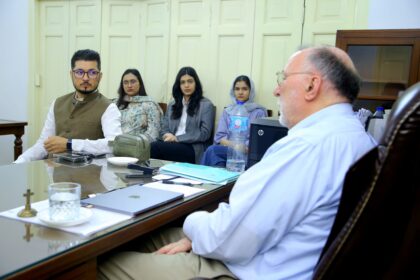Over ten years ago, my parents decided to homeschool me. One day, when I was in 1st Grade, I told them I did not want to go to school anymore. To my surprise, they agreed. Looking back, there were several factors that they had considered before taking me out of school, beyond just me not wanting to go. Factors like bullying, peer pressure, feeling the need to act a certain way etc. And so, my homeschooling journey started.
My parents enrolled me in an American online learning programme called Time4Learning. It had a complete plan for every grade level which could be customised, all video content was prerecorded, and you could start your lessons at any time as there were not any constraints or deadlines. There were many benefits when it came to my homeschooling experience. It provided a lot of flexibility. If we needed to go somewhere or if there was a holiday, we could choose to skip Time4Learning that day. Schools have limited extracurriculars, whereas in homeschooling, there are a myriad of opportunities to look at and explore. You can make friends with like-minded people instead of having to be forced into connection purely for a social presence.
The factors my parents considered before taking me out of school and switching to homeschooling were not just taken away but replaced with positive aspects of education. Any kind of accomplishment was met with happiness and reward. Any lesson or chapter I learnt well and completed was celebrated by my family, which encouraged me to keep learning. I continued with Time4Learning until O levels; it provided the foundation for me to continue learning by myself. It would be unfair to say that there weren’t any obstacles; of course there were. For instance, being overwhelmed or not wanting to learn on some days. But the beauty of those obstacles is that they are your own, and may be more easily overcome rather than external factors in school holding you back like bullying.
Then came Covid-19. It caused a global pandemic and forced everyone to stay home. All places of education had to be closed, and children had to be homeschooled. This led to countless people coming to my parents and asking how to homeschool their kids. A decision made by my parents over ten years ago, which was met with surprise, disappointment, and confusion, now had to become the primary method of education indefinitely. We were ahead of the curve. It stayed the same way for two years at the very least; some parents were so surprised and happy with the positives of homeschooling that they continued it with their kids even after the threat of Covid had diminished.
It is not perfect, but it is powerful. The impact of homeschooling on children can be big if done well. They can keep learning online and not have to miss out on spending quality time with their family. This can also help transform them into kind people who tune into their individuality, as opposed to the pressures of conformity. They are also able to receive the individual attention they need compared to the large class sizes in most schools. Schools are not bad or evil; however, the negative aspects of school are so damaging to children as they are developing, that what they learn and consume stays with them for their entire lives in some way, shape or form.
Homeschooling gives the parents a chance to monitor their children more closely and choose what to show them or what to teach them in an educational sense, socially or emotionally. Another difference is grades. In schools, you are pressured to study to get a good grade; in doing so, the very purpose of school is forgotten: it is to educate and teach the children crucial topics and subjects so that they are well prepared for life as they grow up. Homeschooling focuses on that; they can learn without the pressures of studying just to get an A*. Parents can choose to sign their kids up for online learning programmes or teach the kids themselves. Combining their own experiences with the subjects and topics, the parents can teach through a more personalised lens compared to school and offer a unique perspective that a schoolteacher may not have.
Homeschooling may not be for everyone—but when done with care, flexibility, and love, it offers something that conventional schooling often struggles to provide: freedom. Freedom to learn at your own pace, to be nurtured as a whole person, and to grow up without the weight of unnecessary pressures. My experience of homeschooling has been overwhelmingly positive; it has made learning easy and very enjoyable, and has helped me become a person who enjoys addressing challenges in my own way, without pressure.
















